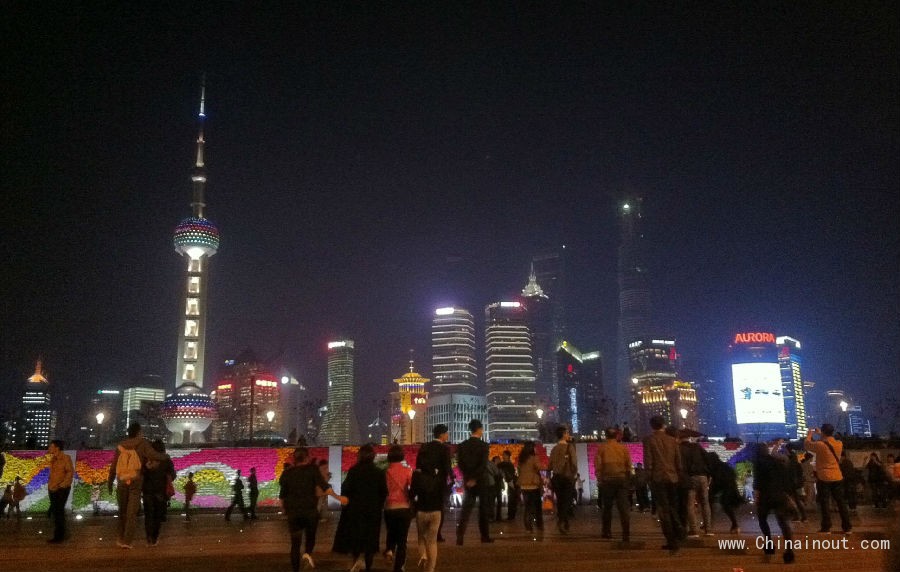中國長久以來已世界工廠而聞名,這是名副其實的,。例如,,在2011年,中國制造了該年度全球個人電腦的90%,,全球空調(diào)的80%,,全球太陽能電池的74%,全球手機的70%,。
就像一家工廠一樣,,中國給人的感覺就是臟、吵,、擠,、鬧,就像到了下午6點下班打卡時間你恨不得馬上離去的地方,。就像工廠的車間一樣,,中國通常是全球供應(yīng)鏈上的最底層,可能是最無趣的制造及裝配層,,也就是說,,創(chuàng)新與其無關(guān)。
不過在全球供應(yīng)鏈的真實商海中,,中國某些行業(yè)創(chuàng)造出讓人驚艷的服務(wù)與產(chǎn)品,。以下是中國的八個行業(yè),在滿足客戶需求上,、在創(chuàng)新的深度與廣度上超越了世界上更發(fā)達(dá)國家的競爭對手,。
微支付
微支付已經(jīng)成為了西方的常規(guī)支付手段,現(xiàn)在互聯(lián)網(wǎng)用戶在蘋果的iTunes商店為虛擬商品和游戲如糖果粉碎等支付小額的款項,。不過在美國之前,,微支付在東亞已經(jīng)很普及了,東亞盛行的盜版讓銷售游戲和軟件的公司很難掙到錢,,大多數(shù)公司在西方也是如此,。
不同的是,中國的科技公司向玩家免費提供游戲及網(wǎng)絡(luò)服務(wù),,然后對不同的內(nèi)容收取小額費用,,譬如幫助玩家升級的虛擬的劍,,虛擬角色的新裝備,手機的新鈴聲等,。這個商業(yè)模式不僅幫助數(shù)碼產(chǎn)品公司在盜版猖獗的情況下掙到錢,,同樣被證實對于低收入國家更為適用。低收入國家的消費者不太愿意也無力為一件數(shù)碼產(chǎn)品一次性預(yù)付一大筆錢,。騰訊,,目前中國最成功的公司之一,其帝國就是建立在這些無數(shù)的小額交易之上,。
電子商務(wù)
在阿里巴巴空前成功的在美國上市之后,,美國人對中國電子商務(wù)市場的前景更加清楚了。阿里巴巴以多種讓人興奮的方式創(chuàng)新的改造了eBay的商業(yè)模式以迎合中國市場,。中國的電子商務(wù)的創(chuàng)新之處是讓一切變得更簡單,、更廣泛:電子商務(wù)從根本上跨越式的改變了中國的傳統(tǒng)零售業(yè),將現(xiàn)代消費在實體店之前延伸到了偏遠(yuǎn)地區(qū),。
中國是個巨大的國家,,從領(lǐng)土到人口都是。許多高檔品牌對中國市場的無法覆蓋,,僅僅是在最大的幾個沿海城市開了幾個門店,。以蘋果為例,在中國僅僅有13個門店,,而其在第二季度中國的凈銷量卻是93億美元,。
大城市之外的中國消費者很快學(xué)會了在線購物,而不是去實體店,。根據(jù)KPMG數(shù)據(jù),,來自一線城市之外的其他城市的需求使得電子商務(wù)在2009至2012年間增長了70%
所以,如果沒有以下的行業(yè),,這一切都不可能實現(xiàn),。。,。
快遞業(yè)
當(dāng)然,,有時快遞小哥會偶爾玩失蹤、遙遙無期,,不過一般來說,,中國的快遞服務(wù)非常具有靈活性、快速而且很便宜,,以至于有些上海的朋友會通過快遞向同城的朋友遞送新鮮出爐的曲奇,。
低價高質(zhì)源自于充分競爭、繁榮的電子商務(wù)帶來了巨大的需求,、以及中國的低價勞力,。在更多的中國人涌向海外時,,中國的快遞公司也在以UPS 或DHL幾分之一的價格提供國際快遞服務(wù)。
在線投資產(chǎn)品
銀行業(yè)在中國仍然是嚴(yán)格監(jiān)管的行業(yè),,不過新出現(xiàn)的在線投資平臺讓傳統(tǒng)銀行系統(tǒng)無法服務(wù)到的中國人接觸到新的投資手段,。
最出名及最大的一個平臺是阿里巴巴的余額寶,在2013年6月上線,,之后迅速成為了中國最大、世界最大之一的市場基金,。這個平臺讓互聯(lián)網(wǎng)用戶可以將其支付寶賬戶上的余額用于投資,,回報率大約有5%。騰訊,、百度,、新浪已經(jīng)其他科技公司也在提供類似的產(chǎn)品。
大部分的這些產(chǎn)品都沒有最低額度限制,,而傳統(tǒng)的中國銀行投資類產(chǎn)品通常不會低于1000元(162美元)起,。由于數(shù)字平臺的低運行成本,這些服務(wù)可以讓那些傳統(tǒng)銀行業(yè)之前忽略的低收入或偏遠(yuǎn)客戶受益,。
廉價智能手機
對許多中國人而言,,手機是他們上網(wǎng)的唯一方式,比西方人手機對于自己的職業(yè)和社交更為重要,。盡管蘋果和三星在中國依然流行,,越來越多人轉(zhuǎn)向購買更便宜的中國品牌,這些本地手機只有幾分之一的價格,、卻擁有差不多的賣點,。
小米是中國最成功的廉價手機品牌之一。小米以限時搶購制造饑餓氛圍,,以低成本在線方式銷售大部分產(chǎn)品,,靠軟件而非手機銷售產(chǎn)生利潤。
小米的成功吸引了大批的模仿者,,包括酷派,、Oppo、一加及聯(lián)想,。聯(lián)想是中國更加老到的電子產(chǎn)品制造商,,收購過IBM,在印度尼西亞,、印度及俄羅斯中等價位的智能手機市場上銷售的不錯,。
高鐵
中國的高鐵設(shè)計并非是完全原創(chuàng)。中國的設(shè)計是基于日本,、歐洲及其他國家的原型,,其技術(shù)來源是與各個跨國公司的技術(shù)轉(zhuǎn)讓協(xié)議,。
然而中國高鐵網(wǎng)絡(luò)之大、使得高鐵對一般人群變得經(jīng)濟可行的扶持方式,,使得高鐵系統(tǒng)成為了變革性的力量,。中國擁有了全球最大的高速鐵路網(wǎng)絡(luò)(+124 mph),鋪軌長度在2013年超過了7000英里,。
水電
中國對水電青睞已久,。毛曾經(jīng)描繪過類似今日的三峽大壩那樣橫跨揚子江的大壩。在擔(dān)任國家主席和總書記之前,,胡JT曾經(jīng)是一位水利工程師,,在國營的中國水利水電任職5年。在位后,,胡見證了世界最大水壩- 三峽大壩的竣工,。
如今,中國是世界上最大的水力發(fā)電國家,,裝機容量是250吉瓦,,全球最大的25座水電站有11座位于中國。由于國內(nèi)可供開發(fā)的河流已經(jīng)不多,,其國營公司開始向國外擴張,。據(jù)非政府組織International Rivers統(tǒng)計,中國的銀行和公司參與了位于74個國家的330座水壩,,特別是在非洲和東南亞,。
這些水壩對中國就世界而言是否只有正面影響是有爭議的。水壩的帶來移民安置問題,,破壞生態(tài)系統(tǒng),,淹沒考古地點及文化古跡,增加滑坡的危險,,加劇下游的污染程度,。不過水電也是全球最大的可再生能源來源,在中國水電有助于減少燃煤的使用,。無論你是如何看待大壩建造的利弊,,中國已經(jīng)無可辯駁的將水電發(fā)展到了前所未有的高度。
DNA測序
測定一套全部基因組的成本已經(jīng)從2003年的30億美元降到了如今的幾千美元,。這個成就大部分要歸功于一家中國生物科技公司-- 北京基因組研究所BGI,,其擁有世界基因測序能力的50%。
BGI測定的DNA組比全球的其他機構(gòu)都多,,包括哈佛和國際衛(wèi)生組織,。該公司獲取了包括癌癥細(xì)胞、植物、人類以及大熊貓的基因圖譜?,F(xiàn)在該公司在挖掘超過2000個有自閉癥兒童家庭的基因圖譜數(shù)據(jù)。BGI的目標(biāo)是將全基因組測序的成本降低到1000美元以下,,以實現(xiàn)在正常的醫(yī)療服務(wù)中使用該技術(shù),。(中國進(jìn)出口網(wǎng))
China has long been known as the factory to the world, and with good reason. In 2011, forexample, it manufactured 90% of all the personal computers produced globally that year, as wellas 80% of the air conditioners, 74% of the solar cells, and 70% of the mobile phones.
Like a factory, China has a reputation for being dirty, noisy, crowded and jarring to the senses– the kind of place you're eager to clock out from and leave at 6 PM. And like the factory floor,China is usually the last and perhaps the least interesting stage of manufacturing and assemblyin global supply chains. Typically, the innovation happens elsewher.
But amid the gritty business of global supply chains, some Chinese industries are developingsurprisingly innovative services and products. Here are eight of the industries in China that aredoing a better job at meeting people's needs and pushing the boundaries of innovation thanmore established competitors in other parts of the world.

1. Micropayments
Micropayments have finally become a standard in the West, with internet users now payingsmall fees for virtual goods from the Apple iTunes store and games like Candy Crush. Butbefore they were popularized in the U.S., these mini-payments were common in East Asia,wher widespread piracy made it difficult for companies to profit from selling games orsoftware, as most companies have in the West.
Instead, Chinese tech companies would offer their games and web services for free, and thencharge small amounts of money for individual pieces of content – such as a virtual sword tohelp a gamer reach the next level, a new outfit for a virtual avatar, or a new ring tone for yourcell phone. This business model not only helped digital companies make money despiterampant piracy, it also proved more appealing in a lower-income country, wher consumerswere less willing and able to shell out a big lump sum for a digital product up front. Tencent,now one of China's most successful companies, built its empire on countless of these minitransactions.
2. E-commerce
Americans are more aware than ever of the promise of the Chinese e-commerce market, afterAlibaba's massive and successful U.S. listing this fall. Alibaba is an innovative company,adapting eBay's business model to the Chinese market in a number of interesting ways. But themost innovative thing about Chinese e-commerce may be simpler and broader reaching: Thate-commerce has basically leapfrogged traditional retail in China, bringing modernconsumerism to developing rural areas before brick-and-mortar stores can.
China is a massive country, both in terms of size and population. Faced with these logisticalchallenges, many upscale brands have barely penetrated into China, establishing just a fewstores in the country's largest coastal cities. Apple, for example, has only 13 stores in China,despite recording net sales of $9.3 billion in China in the second quarter.
Chinese consumers outside of the major cities have quickly taken to going online to buyproducts, obviating brick-and-mortar stores. That demand from lower-tier cities helped e-commerce revenues expand at more than 70 percent per year between 2009 and 2012,according to research by KPMG.
Of course, none of this would be possible without…
3. Delivery services
Of course, sometimes your delivery guy gets lost, or is vague about what time he will arrive.But in general, courier services in China are flexible, fast and very cheap – so much so thatsome friends in Shanghai would use delivery services to send freshly baked cookies to friendsacross the city.
The low cost and high quality is due to lots of competition in the segment, high demand fordeliveries due to the bustling e-commerce business, and a low cost of labor in China. As moreChinese head abroad, Chinese delivery companies have sprung up that offer internationaldelivery at a fraction of the price of companies like UPS and DHL.
4. Online investment products
The banking sector is still tightly regulated in China, but new online investment platforms inChina are providing many people who aren't served by the traditional banking system withaccess to investment options.
The most famous and biggest of these services is Alibaba's Yu'e Bao, which since launching inJune 2013 has rapidly become the largest money market fund in China and among the biggestin the world. The platform allows internet users to invest the leftover cash that is sitting intheir accounts at Alibaba's payment service, Alipay, for a roughly 5 percent return. Tencent,Baidu, Sina, and other technology companies are offering competing products.
Most of these services have no minimum requirement for the amount invested, unlike Chinesebanks, which typically require at least 1,000 RMB ($162) for many investment products. Due tothe lower cost of operating a digital platform, these services can afford to cater to the lower-earning or rural consumers that traditional banks have previously ignored.
5. Cheap smartphones
For many Chinese people, a smartphone is their sole way of accessing the internet, and evenmore central to their careers and social lives than in the West. Although Apple and Samsungare still hugely popular in China, many people are turning to cheaper domestic brands toacquire the same bells and whistles at a fraction of the price.
Xiaomi is among the most successful of China's cheap mobile brands. Xiaomi sells its phones inflash sales to generate buzz, and then keeps costs low by selling most of its products onlineand generating revenue from software sales, rather than handsets. The company plans to sell60 million smartphones in 2014, a sharp rise from 18.7 million sold in 2013 and 7.2 million in2012.
Xiaomi's success has inspired a lot of followers, including Coolpad, Oppo and OnePlus. Lenovo,China's more seasoned electronics product maker that acquired IBM, has also done well sellingless expensive smartphones in markets such as Indonesia, India and Russia.
6. High-speed rail

The designs for China's high-speed rail system aren't particularly original. China modeled itstrain systems on those in Japan, Europe and elsewher, and acquired the know-how throughtechnology transfer agreements with multinational companies.
But the extent of China's network, and the way it has been subsidized to make high-speed railaffordable for hundreds of millions of people, makes the system transformative. China has thelongest high-speed rail network (+124 mph) anywher in the world, with nearly 7,000 miles oftrack at the end of 2013.
7. Hydroelectricity
China has a long-running fascination with hydroelectric power. Mao Zedong dreamed of adam stretching across the Yangtze similar to the present-day Three Gorges Dam. Before heserved as president and party chief, Hu Jintao was a water engineer who worked for the stateowned company Sinohydro for five years. When in office, Hu saw the Three Gorges Dam, thelargest dam in the world, completed.
Today, China is the world's largest producer of hydroelectric power, with more than 250gigawatts of hydroelectric capacity and 11 of the world's largest 25 hydroelectric plants. AsChina runs out of rivers to dam, its state-owned companies are increasingly looking abroad.Chinese banks and companies have been involved in 330 dams in 74 different countries since2000, particularly in Africa and Southeast Asia, according to the NGO International Rivers.
Whether these dams are really a net positive for China and the world is debatable. They'venecessitated the relocation of millions of people, destroyed ecosystems, flooded archeologicaland cultural sites, increased the risk of landslides, and raised pollution levels downstream. Buthydroelectric dams are also the biggest source of renewable energy in the world, and in Chinathey have helped to offset the burning of coal. Whatever your view about dam building, it'sundeniable that China has taken hydroelectric power to a level unseen before.
8. DNA sequencing
The cost of sequencing a complete genome has fallen from $3 billion in 2003 to just a fewthousands dollars today. That accomplishment is in large part due to one Chinese biotech firmcalled Beijing Genomics Institute, or BGI, which today accounts for about half of the world'sglobal genetic sequencing capacity.
BGI sequences more DNA than any other institution on earth, including Harvard and theNational Institutes of Health. The company it has mapped out the genomes for cancer cells,plants, insects, humans and the giant panda. It is now working to catalogue the genes of morethan 2,000 families with autistic children. B.G.I. aims bring the cost under $1,000, at whichpoint it could be incorporated into normal medical care.











